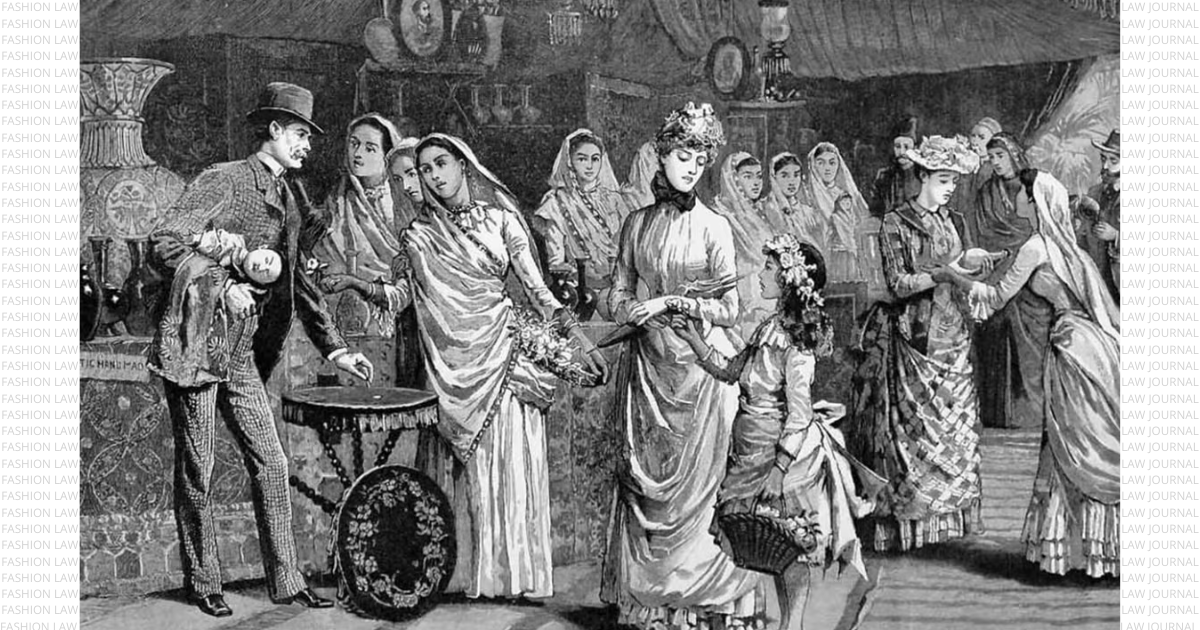The fashion industry, with its fast-paced evolution and global market reach, demands a dynamic and well-organized legal operations team. Effective legal operations are essential to ensure that brands stay compliant with regulations, manage intellectual property, and protect against the growing risks of supply chain issues, data privacy concerns, and more. As companies in this industry continue to expand, having a dedicated and agile legal operations team is not just beneficial—it’s critical.
Understanding the Unique Needs of the Fashion Industry
Legal operations in fashion must go beyond the typical concerns of contracts and compliance. The industry’s high level of creativity and constant innovation creates a unique set of challenges. From protecting intellectual property (IP) to navigating sustainability regulations and managing the legalities of influencer collaborations, the scope of legal operations is broad.
In fashion, a brand’s identity is everything. Protecting trademarks, design patents, and copyrights is essential to maintaining brand value. However, that is just the start. With fast-moving trends and global supply chains, legal teams also need to monitor ever-changing laws and consumer protection requirements across multiple jurisdictions. Therefore, the first step in building an effective legal operations team is to ensure that team members have a deep understanding of the fashion business and its specific legal challenges.
Leveraging Technology and Automation
A successful legal operations team harnesses the power of technology to streamline processes. Fashion brands often work with hundreds of contracts, vendor agreements, and IP filings across multiple countries. Managing this volume manually is not feasible.
Automation tools, like contract lifecycle management (CLM) platforms, play a key role in expediting contract approvals, maintaining compliance, and reducing risk. Tools such as Ironclad, which enable contract tracking, digital signatures, and data management, are indispensable for managing a large legal portfolio with limited human resources.
Automation also comes into play when protecting a brand’s IP. Solutions such as RedPoints can be used to identify counterfeit goods, enforce IP rights online, and remove infringing listings from e-commerce platforms. By integrating these tools, fashion legal operations teams can manage more with less and respond swiftly to potential legal threats.
Structuring the Team: Balance Between Legal Expertise and Operational Efficiency
When building a legal operations team, a clear balance must be struck between legal expertise and operational efficiency. This requires careful consideration of skillsets. A well-rounded team will include legal professionals experienced in IP, contracts, and compliance, as well as individuals who are experts in legal technology, data analysis, and process improvement.
The legal operations lead should have strong leadership skills and an in-depth knowledge of how the fashion industry functions. This person needs to ensure the team operates efficiently while aligning closely with the broader business goals of the brand.
It’s also important to create a team structure that allows flexibility. For example, legal specialists should be able to transition between tasks like overseeing IP enforcement one day and collaborating on supply chain compliance the next. This adaptability helps the team stay agile in the ever-evolving fashion world.
Collaboration Across Departments
Legal operations do not exist in a vacuum. One of the key aspects of an effective team is its ability to collaborate seamlessly with other departments, such as design, marketing, IT, and sustainability teams. These cross-departmental relationships are critical for spotting legal risks early and preventing potential issues before they escalate.
For instance, the marketing team should have a direct line to legal operations when it comes to influencer contracts or campaigns involving new product launches. Similarly, the design team needs close coordination with legal to ensure that new designs are protected and any third-party collaborations are compliant with regulations.
Creating an open, communicative environment within the company allows for better collaboration and keeps everyone aligned toward shared goals.
Prioritizing Compliance and Sustainability
The legal landscape in the fashion industry is increasingly influenced by sustainability concerns. Brands are under growing scrutiny to ensure that their products are ethically sourced, environmentally friendly, and comply with international labor laws. Legal operations teams need to stay on top of regulatory changes, especially in the area of environmental compliance.
Incorporating compliance management tools that track sustainability initiatives and supply chain transparency can help legal teams anticipate and address regulatory risks. By integrating sustainability compliance into the core operations, fashion brands can not only avoid legal pitfalls but also build stronger relationships with ethically conscious consumers.
Measuring Success and Driving Continuous Improvement
An effective legal operations team must be focused on continuous improvement. This means regularly evaluating the effectiveness of processes, technology, and the team itself. By measuring key performance indicators (KPIs) such as contract turnaround time, litigation cost management, and the success of IP enforcement, legal operations can identify areas for improvement.
Regular training and upskilling of the team are also important. The legal landscape is constantly evolving, and fashion legal operations teams must stay informed about new regulations, emerging trends, and the latest technologies. Continuous improvement is the key to keeping the legal function lean and efficient while supporting the company’s long-term success.
Emphasizing Talent Development and Skills Diversification
Building a high-performing legal operations team means recruiting individuals with diverse backgrounds and investing in continuous development. In addition to traditional legal skills, legal operations in fashion benefit from professionals adept in project management, financial analysis, technology adoption, and data insights. Recruiting T-shaped professionals—those with deep expertise in one area but broad knowledge across other functions—can improve flexibility and adaptability in fast-evolving fashion environments. For example, some legal operations roles might combine contract management with data analytics to streamline compliance tracking or improve contract lifecycle management. Regular training in emerging areas, like AI-driven IP management and sustainable fashion compliance, ensures that the team stays ahead of regulatory shifts and technological advancements, making talent development essential for long-term success.
Developing a Clear Organizational Structure
A structured hierarchy within legal operations helps align team functions with business goals. Legal operations typically include roles such as project managers, legal technologists, risk managers, and financial analysts, each contributing to a seamless flow of legal services. A well-defined structure could look like this: a Legal Operations Director overseeing operations, supported by legal project managers, contract specialists, and compliance analysts. Such a hierarchy enables a smoother distribution of responsibilities, accountability, and support for cross-functional projects. This structure is also beneficial in fostering collaboration across departments and centralizing decision-making, which is crucial for legal efficiency within fashion brands.
Integrating Legal Operations into Sustainability Initiatives
Fashion brands face mounting pressure to adopt sustainable practices and uphold labor and environmental standards, making sustainability a central focus for legal operations. By embedding sustainability into legal processes, teams can preemptively address regulatory requirements and improve brand reputation. Tools that track sustainability metrics within supply chains—such as product sourcing audits, emissions tracking, and ethical labor checks—can provide a comprehensive view of compliance and potential risks. Legal operations teams may work closely with sustainability departments to ensure compliance with regulations such as the EU’s Sustainable Product Initiative or California’s Garment Worker Protection Act, aligning legal actions with corporate social responsibility goals.
Data-Driven Decision Making and Analytics
In the digital age, data plays a critical role in shaping legal strategy and enhancing operational efficiency. Legal operations teams can leverage analytics platforms to monitor key performance indicators (KPIs) related to contract lifecycle times, dispute resolution, and risk management. With a data-driven approach, the team can uncover patterns in IP infringements, track vendor compliance, and predict potential legal challenges, ultimately driving better decision-making. Advanced tools like artificial intelligence (AI) and machine learning (ML) enhance this by providing predictive insights into market risks, emerging regulatory requirements, and IP protection strategies.
Building a Culture of Compliance
In fashion, a proactive compliance culture helps prevent costly legal issues and enhances brand integrity. Legal operations can support this by fostering an organizational commitment to compliance, from design through to distribution. Clear guidelines on compliance standards and regular workshops for internal teams (like design and marketing) promote awareness of the brand’s legal responsibilities. This can be especially useful in international operations where varying regional laws require nuanced understanding. Establishing compliance as part of the core brand ethos enables smoother alignment of business actions with regulatory expectations and mitigates risks more effectively.
Preparing for Crisis and Risk Management
Fashion brands are susceptible to unique legal risks—from counterfeit goods to sudden supply chain disruptions. An effective legal operations team develops crisis protocols that enable quick responses to potential legal and reputational threats. This could involve preparing detailed IP enforcement plans for counterfeits, setting up rapid response systems for product recalls, or training teams on cybersecurity measures to protect customer data. Establishing a robust risk management framework and testing it periodically prepares the brand to handle crises efficiently and safeguard brand trust.
Conclusion
Building an effective legal operations team in the fashion industry requires a deep understanding of the unique challenges of the industry, the smart use of technology, and a commitment to cross-departmental collaboration. Cross-departmental collaboration further emphasizes the team’s value, as legal operations work in tandem with marketing, design, IT, and sustainability departments to anticipate issues and implement preventative measures. A culture of compliance fostered by ongoing education and a proactive approach to crisis management allows the brand to stay resilient in the face of evolving regulatory landscapes and reputational threats. By embedding these practices into the very fabric of the brand, legal operations become a vital partner in not only protecting the brand’s assets and reputation but also in fueling its growth, agility, and long-term success in a competitive global market.
Ultimately, a well-rounded legal operations team acts as a strategic ally to the brand, transforming legal compliance from a reactive necessity into a proactive advantage. With the right combination of skilled talent, collaborative culture, and cutting-edge technology, legal operations can secure the brand’s future, bolster its market position, and drive innovation within the fashion industry.
With the right structure, tools, and focus on continuous improvement, legal operations can play a pivotal role in ensuring that fashion brands thrive in today’s complex global market. The result is not only legal compliance but also a strategic advantage that supports innovation and protects the brand’s value for years to come.
References
- “How to Build a High-Performing Legal Operations Team,” Morae Global Corporation, 2023. Available at: https://www.moraeglobal.com
- “Strategies for Effective Legal Operations in Fashion,” Exigent Group, 2024. Available at: https://www.exigent-group.com
- “Using Technology for Legal Operations Efficiency,” CLOC Legal Operations, 2023. Available at: https://cloc.org
- “Sustainability and Compliance in Legal Operations,” Corporate Counsel Business Journal, 2023. Available at: https://ccbjournal.com
About Authors: Raylene Proto and Anuj Kumar
Raylene Proto
With more than a decade of experience in legal operations, Raylene Proto has made her mark at Fortune 500 companies like Arbonne International and Philips Sonicare, specializing in mergers and acquisitions, intellectual property, brand protection, and compliance. Her career includes roles in the fashion industry as a Brand Manager at Michael Kors and Macy’s.
In 2016, Raylene took on the role of Manager of Legal Affairs at Tillys, where she demonstrated her ability to independently manage the legal department. Her leadership skills were further honed at 5.11 Tactical, where she tackled intellectual property management, anti-counterfeiting, retail compliance, and data security. In 2021, she made history as the first legal hire at a.k.a. Brands, where she led the way in streamlining contract management and spearheading the legal operations program.
Raylene holds a bachelor’s degree in Fashion Marketing and Management from The Art Institute of California – Hollywood and a legal education from Washington University in St. Louis School of Law. She also has a certificate in Fashion Law and Technology from Fordham Law School’s Fashion Law Institute.
Anuj Kumar:
Anuj is also Founder & editor-in-chief of Fashion Law Journal, an exclusive resource for legal issues involving the fashion industry. Anuj has been assisting fashion brands in Compliances required for Fashion Industry, the issues of Licensing, Merchandising, and protecting IP, Labour, and the Rights of stakeholders.
Anuj is also founder of Legal Desire Media (among leading legal industry insights media with over 3Million+ readership), having experience of 12 years in Publishing, Compliances, Business Development & Marketing, closely working with over 50+ global brands, influencers & law firms in various practices for comprehensive business development solutions, empowering small firms to successfully build their brands, connect with consumers to grow their practice. Serving clients in brand setup, industry compliances, managing their digital properties, business Development goals & Corporate Communications, etc.


















